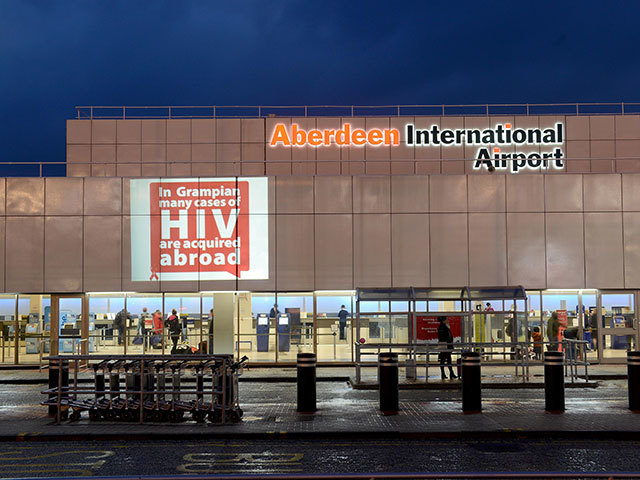
Those who work abroad, for the oil industry or other business sectors, have always been encouraged to ensure they look after their health. It is considered essential to have all the necessary vaccines, perhaps take a course of malaria tablets, avoid drinking the tap water, use sunscreen and keep hydrated. Workers are expected to protect themselves from harm by using personal protective equipment, and safety messages surround us all in our everyday working lives.
However there is one aspect of workers’ health and safety which may have become neglected: sexual health might be the last thing on a worker’s mind as he heads towards the check-in, but cases of HIV, and other sexually transmitted infections, continue to increase in Grampian and the Grampian cases are more likely to have acquired their infection abroad. Unprotected sexual intercourse is by far the leading risk factor. Other risk factors include receiving medical or dental treatment or blood transfusions in countries where infection control is not optimal, sharing needles or other drug injecting or snorting equipment and unsterile tattooing or body piercing.
According to Health Protection Scotland there were 47 diagnoses of HIV in Grampian in 2013, compared to 42 for the previous year. One in four of these new cases was acquired abroad. Futhermore, The Health Protection Agency estimates that a quarter of all HIV cases in the UK remain undiagnosed.
Aberdeen, the oil capital of Europe, is a significant destination for those working in the oil industry and HIV and Hepatitis are prevalent in many oil producing countries. The World Health Organisation reports that in Sub- Saharan Africa almost 1 in 20 adults are living with HIV, whilst The Americas, Asia, Eastern Europe, and Indonesia are all considered high risk countries for these infections.
A North East man describes how he became infected without considering the risks:, “I have worked abroad for 20 years. After a night with colleagues and a few too many drinks, I had unprotected sex.
“At first I thought I was ill with malaria but after further tests I was diagnosed with HIV. I am now receiving treatment and feel healthier than I have in a long time.
“I would urge everyone to use protection, and if you haven’t − get tested. HIV doesn’t just affect you, it affects your family, your friends and everyone around you.”
This man’s story is typical of other cases we see in NHS Grampian Sexual Health Services and Infection Unit. Many people wait until symptoms of infection appear before considering going for a test. This can sometimes be weeks or even years after the episode of risk. If individuals believe they may have placed themselves at risk, it’s important they consider early testing, to avoid long-term complications and further transmission to others.
The message is clear- think about your personal safety when travelling abroad. If sex might be on the agenda, use personal protective equipment! Condoms will protect you against HIV and other sexually transmitted infections, but if you think you’ve been at risk get tested. Testing and treatment is free and confidential at NHS Grampian’s Sexual Health Services. Effective treatment for HIV is available- in many cases this consists of just one tablet a day. If started early, treatment can help those affected live close to an average lifespan.
Details of where to get more information and free, confidential testing are available at www.nhsgrampian.org/sexualhealth
Penny is a Health Improvement Practitioner at NHS Grampian.
Recommended for you
